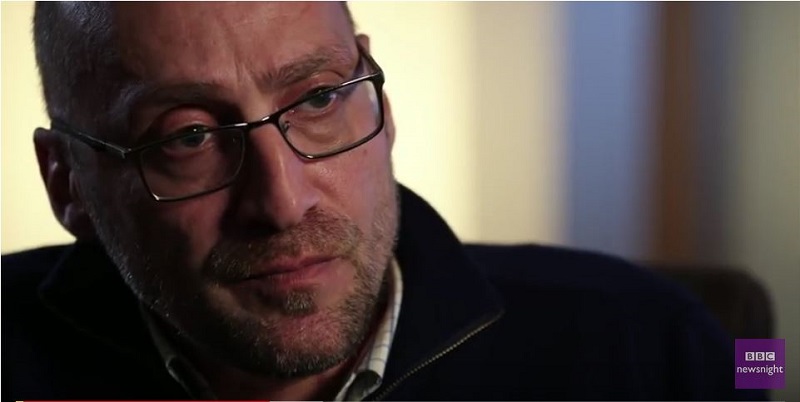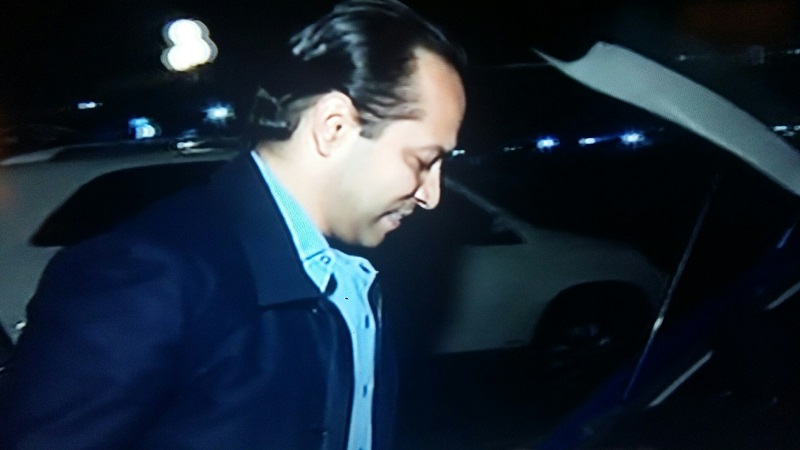The arrest of Pilatus Bank chairman Ali Sadr Hashemi Nejad in the US on Tuesday may be the beginning of the end of a dark period that has engulfed Malta, according to former anti-money laundering investigator Jonathan Ferris.
Ferris spoke to The Shift News after Sadr, 38, was charged in a six-count indictment filed in a Manhattan court accusing him of participating in a scheme to evade US sanctions against Iran.
He is charged with funnelling more than $115 million paid under a Venezuelan construction contract through the US financial system. If convicted, Ali Sadr could face a sentence of up to 125 years in prison, AP said.
Prosecutors said on Tuesday that Ali Sadr created front companies and foreign bank accounts to mask his dealings with Iranian businesses in Venezuela, using entities in Switzerland and Turkey to conceal the Iranian connection to the funds.
Ferris, who was sacked from the Financial Intelligence Analysis Unit a few days after the 2017 general election, and who has so far been denied whistleblower status to reveal his findings, said:
“I see this as the beginning of the end of a dark period that has engulfed our country, which has been abused and used by individuals for their own personal gain rather than the benefit of the people”.
Ferris had been fired from the FIAU after he started looking into reports by journalist Daphne Caruana Galizia that the Panama company Egrant, revealed in the Panama Papers, was owned by Prime Minister Joseph Muscat’s wife.
Caruana Galizia had accused the bank of facilitating corrupt political activities and money laundering. Pilatus Bank had denied the allegations and sued Caruana Galizia in Arizona, for damages estimated at $40 million for defamation intended to cripple her financially.
Caruana Galizia was assassinated on 16 October in a car bomb that exploded in broad daylight a few metres away from her home.
Ferris raised a number of questions that needed to be addressed by the authorities following the US arrests. Regulatory bodies and law enforcement authorities in Malta have consistently protected the bank’s operations despite a constant stream of allegations over the last two years.

Former FIAU official Jonathan Ferris being interviewed by John Sweeney of BBC Newsnight
“What does the FIAU have to say on its Deputy Director clearing the bank with a clean bill of health in September 2016, despite a comprehensive Compliance Report highlighting serious breaches by the bank?” Ferris asked.
The Compliance Report had raised issues such as the lack of sufficient documentation to prove the legitimacy of certain funds and the ease with which politically exposed persons (PEP) were able to carry out transactions without the level of scrutiny required by law, with the FIAU calling this a “veil of secrecy”.
The FIAU had found that a lack of adequate scrutiny of PEP accounts gave the impression the bank was turning a blind eye to enable the investment of funds without the necessary questions being asked.
Assessments of the legitimacy of the funds were “weak and particularly accommodating” and ongoing monitoring was “practically inexistent”. These failures, according to the FIAU, highlighted systematic issues of “grave concern”.
The FIAU had also raised concerns about the impact these shortcomings could have on Malta, saying it exposed both the bank and the jurisdiction to a “high level of risk”.
Soon after the replacement of its acting director Manfred Galdes in September 2016, the FIAU informed Pilatus Bank shortcomings it had identified in terms of compliance with money laundering laws “no longer subsist”.
Ferris also questioned the due diligence on Pilatus Bank done by the MFSA Banking Supervisory Unit, which granted another licence for the bank to open a branch in UK.
Ferris, a former law enforcement officer with a reputation for zeal and rectitude, also pointed a finger at the police force which has refused to investigate Pilatus Bank despite serious doubts on the bank’s operations raised by anti-money laundering investigators: “What do they have to say?”
“Law abiding citizens have a right to demand answers from people who are paid out of the taxpayers’ money. It’s not a question of who was right and who was wrong, but rather a question of integrity, honesty and, above all, justice,” Ferris said.
Sadr’s arrest happened on the same day that Russian whistleblower Maria Efimova, a former Pilatus employee, handed herself in to the Greek authorities. She is the source who corroborated Caruana Galizia’s revelations that the Panama Company Egrant was owned by the wife of Maltese Prime Minister’s wife, Michelle Muscat.
The Prime Minister and his wife had denied the allegations saying it was “the biggest lie in political history”.
On the night that Caruana Galizia had revealed the information, Sadr was caught red-handed emerging from the bank’s back door with bulging bags suspected to contain documents. Ali Sadr flew out of the country within a few hours.
Muscat had repeatedly said that if any evidence emerged to substantiate the allegations on Egrant, now the subject of a criminal magisterial inquiry, he would resign immediately. Many had suspected his confidence was based on the evidence having left Malta that night with Sadr.
Ferris recently filed a second judicial protest over the handling of his request to be granted whistleblower status to reveal his findings.
Ferris has called upon the Prime Minister, Justice Minister Owen Bonnici, Attorney General Peter Grech and Philip Massa (head of the External Whistleblower Unit at the Office of the Prime Minister) to note the “interminable saga” to grant him whistleblower status despite reassurances given to MEPs investigating the rule of law in Malta that he would be given protection.
Without the requested protection, Ferris could face a five-year jail-term and a €100,000 fine for blowing the whistle on any corruption he may have witnessed during his time at the FIAU.














